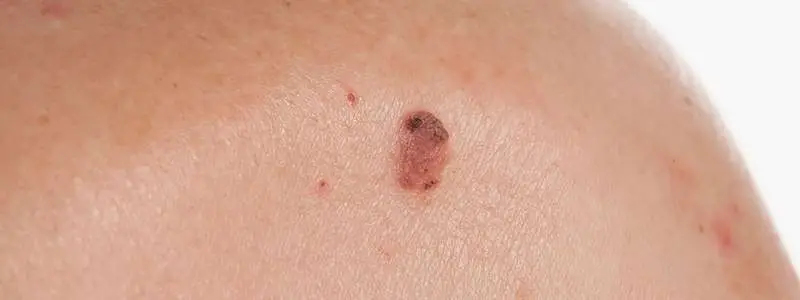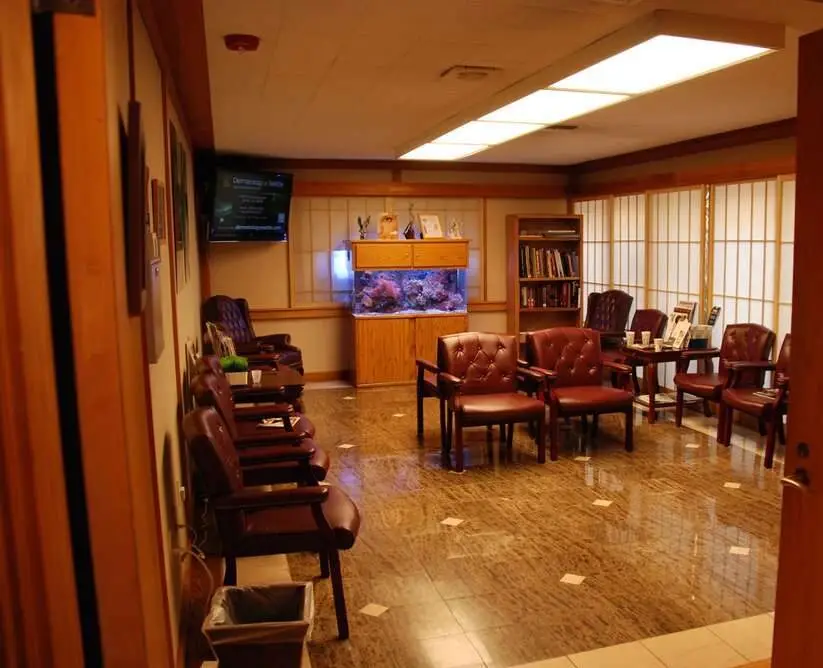Basal Cell Carcinoma

What is basal cell carcinoma?
Basal cell carcinoma is the most common type of skin cancer, forming on skin after years of sun exposure. It can occur on the neck, head, hands and face, but is possible to get anywhere. People who use tanning beds have a much higher risk of getting this condition, especially earlier in life. It grows slowly and rarely spreads. It can, however, grow deep and wide, and can return, making treatment very important.
What are the symptoms?
The first sign is usually a growth on the skin. Domed growth with visible blood vessels, pink or skin-colored. It can be black or brown or have flecks of colors in the growth, it may flatten in the middle and weep fluid, and tends to bleed. It can be mistaken for eczema, and can be waxy feeling, hard, pale-white to yellow or scar-like, which grows slowly. Basal cell carcinoma may look like a sore, and although rare, will itch or feel painful.
What causes basal cell carcinoma?
 Some people are at greater risk for this disease. Having light skin, eyes, and hair, difficulty tanning, or having freckled skin increase the risk. Spending a lot of time in the sun, especially without sunscreen. Sometimes, certain drugs can contribute, as can spending a lot of time in tanning beds. DNA level skin damage is the known cause for basal cell carcinoma. Using sunscreen of SPF 30 or greater can help prevent basal cell carcinoma.
Some people are at greater risk for this disease. Having light skin, eyes, and hair, difficulty tanning, or having freckled skin increase the risk. Spending a lot of time in the sun, especially without sunscreen. Sometimes, certain drugs can contribute, as can spending a lot of time in tanning beds. DNA level skin damage is the known cause for basal cell carcinoma. Using sunscreen of SPF 30 or greater can help prevent basal cell carcinoma.
How is basal cell carcinoma diagnosed?
Basal cell carcinoma is diagnosed with a biopsy, removing all or some of the growth for analysis. The biopsy can be performed during a visit to Dermatology of Seattle. It will then be tested in a lab to determine if it is cancerous.
How is basal cell carcinoma treated?
There are many ways this skin condition can be treated.
- Photodynamic therapy (PDT): First, a chemical is applied and given time to absorb. Then a special light is used to destroy the cancer cells.
- Cryosurgery: Liquid nitrogen freezes the cancer cells.
- Excision: During an office visit, the area is numbed and the tumor and some normal surrounding skin are removed. The normal skin is then tested to see if it is cancerous as well.
- Electrodesiccation and Curettage: First, the tumor is scraped away. Then, any remaining cancer cells are destroyed with electricity.
- Mohs surgery: Mohs (pronounced “moes”) is a special surgery to remove skin cancers, especially basal cell cancers which are difficult to treat.
- Radiation: This is typically used where surgery is not the optimal treatment.
- Medicated creams: Imiquimod or 5-fluorouracil can be used to treat basal cell carcinoma in early stages.
- Pills: Patients with spreading basal cell carcinoma may be prescribed vismodegib.
Basal cell cancer has a high cure rate, especially when found and treated early at Dermatology of Seattle.
Hear from Our Patients:

Get in Touch Now
Have questions or need assistance? Make sure to use our contact form for all inquiries.
